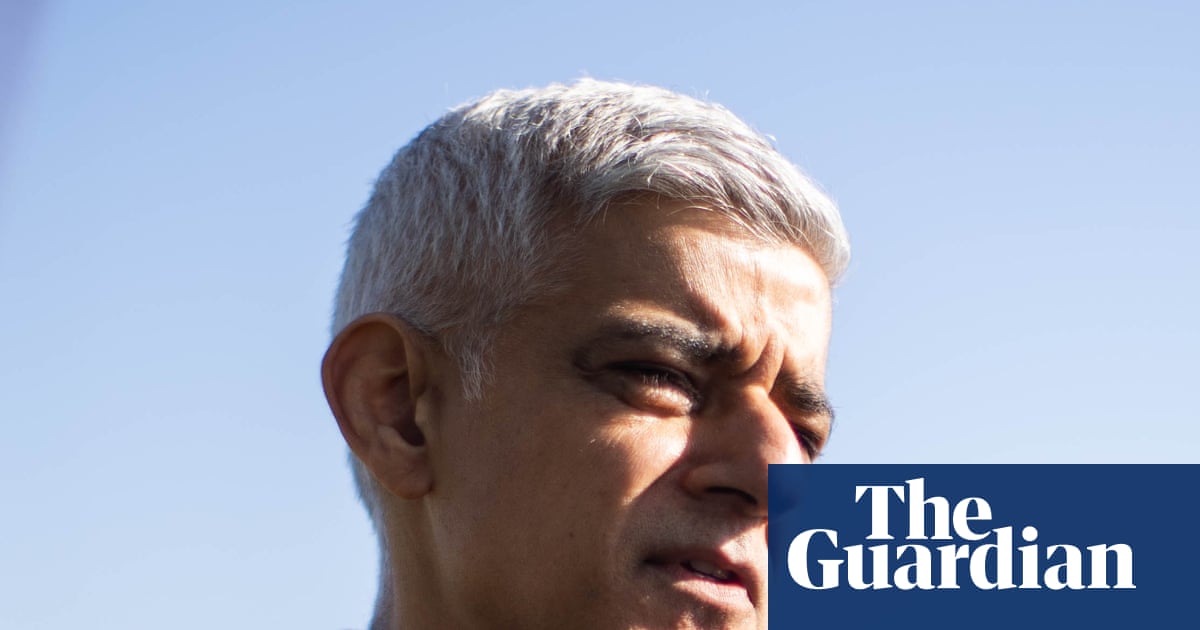An animal is at its most dangerous when it is wounded, and the Hungarian prime minister, Viktor Orbán, was already haemorrhaging supporters before a record number of people took to the streets on Saturday to support Budapest Pride, which his government had legally banned in March.
The pulsating, international, love-fuelled parade, which stretched more than a mile through Budapest’s most prominent landmarks, was everything the Hungarian far right hates. And for Orbán and his nationalist party, Fidesz, the public defiance of Pride organisers, European diplomats and those of us who filled the streets in spite of threats of facial-recognition surveillance, arrests and fines has dented his strongman reputation.
A general election in Hungary is slated for April 2026. In Péter Magyar, the leader of the main opposition party, Tisza, Orbán is up against his toughest political opponent since gaining power in 2010, and at present he’s doing badly. Polls from June put Orbán 15 points behind Magyar. But western democracies would be wise to keep their guard up during Orbán’s laboured, last breaths in power. Boxed into a corner, he will be looking to ignite a new fight against a common enemy.
We can expect a more vicious, angry assault on LGBTQ+ rights in Hungary. He will lead a louder rallying cry against European interference in the country. Orbán needs a crisis to galvanise his country behind him. This includes groups such as the far-right Sixty-Four Counties Youth Movement (Hatvannégy Vármegye Ifjúsági Mozgalom, or HVIM), which led counter-protests during Pride to “defend the sanctity of traditional family values” against the “satanist” and “deviant” LGBTQ+ community.
During a counter-protest on Saturday, I asked Gábor Kelemen, HVIM’s vice-president, what exactly the Hungarian values are that he’s worried will be taken from him by the LGBTQ+ community. “The traditional Hungarian values are very easy,” he answered, flanked by a dozen young men in matching T-shirts. “We are a Christian country. The family is defined by a man and a woman and children. That is it.”
The protection of traditional families is a common anti-LGBTQ+ message pumped out by the government, which controls roughly 90% of all media in Hungary. David Bedo, 32, is a member of Hungary’s national assembly and a founder of the liberal Momentum party. In a quiet cafe in Budapest, he described to me how he was all too familiar with Fidesz’s Russian-inspired constitutional overhauls and its propaganda machine. He is “no longer surprised with anything Orbán does”.
In March, Bedo and five other lawmakers set off smoke bombs inside the Hungarian parliament chamber while Fidesz’s supermajority flexed their control of the rule of law to ban Pride within 48 hours of the proposal being announced. Since then, new bills have been submitted to parliament, including legislation that would allow the government to monitor, penalise and potentially ban organisations including Hungarian NGOs and media outlets that receive any sort of foreign funding. If passed, this will kill off most of Hungary’s civil rights organisations and what’s left of its independent media. “So, yes, I wouldn’t be surprised if there won’t be an election,” Bedo added bluntly. “I wouldn’t be surprised if they ban Tisza and imprison Péter Magyar.”
So how is Hungary getting away with it? Critics believe the European Commission should have introduced interim measures against Hungary when Fidesz passed laws restricting LGBTQ+ information in schools and the media in 2021. Far-right parties across Europe have been emboldened by the absence of firm, timely action against Hungary. LGBTQ+ communities will be the first of many threats they’ll fabricate to paint democracy as the enemy.
after newsletter promotion
According to the ILGA Europe 2025 Review, nationalist conservative groups in Italy, Belgium and Romania have been accusing the LGBTQ+ community of “undermining family values and destabilising society”. In seven European countries, “LGBTQ propaganda” laws have been enacted or proposed, criminalising visibility and restricting discussion of LGBTQ issues. Attempts to introduce legislation excluding LGBTQ+ topics from sex education were recorded in Bulgaria, Italy, the Netherlands, Luxembourg, Norway, Romania, Russia, Slovakia and Turkey. In Finland, Germany, the Netherlands, Norway and Portugal, local authorities have reported “a significant increase in crimes motivated by perceived sexual orientation, gender identity and/or gender expression”, the report noted.
While contexts differ in each country, creating division remains a common tactic. Democracy invites debate, and meaningful debate ensures a range of voices and identities are heard. The appeal of authoritarianism is as much about uniting behind one shared identity as it is about attacking other identities perceived as threatening or destabilising.
You don’t need to look much further than Hungary to see that once an autocratic state is set up, it’s very hard to reverse it. Allowing Orbán to undermine our fundamental rights was a mistake. If we now choose to turn a blind eye to the right’s weaponisation of LGBTQ+ rights, the gradual loss of our democratic rights will be on us.
-
Gordon Cole-Schmidt is a freelance journalist specialising in international human rights and world affairs

.png) 2 months ago
41
2 months ago
41

















































